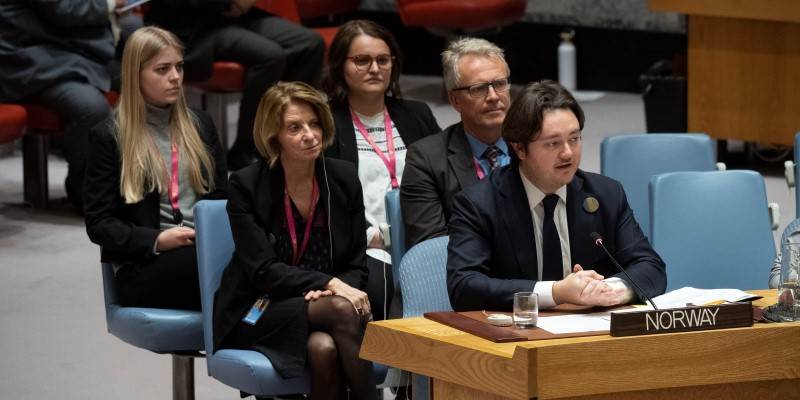Mr. President, Ministers, Distinguished colleagues,
Urgent and unprecedented changes are needed to stop global temperatures from rising over 1.5°C. This was stated in October last year by the report from the Intergovernmental Panel on Climate Change.
In Secretary General Guterres’ own words; “Climate change is moving faster than we are.”
Let me acknowledge the leadership provided by the Dominican Republic, a representative from one of the regions most affected by climate-related disasters. Norway was present at ministerial level at the Foreign Ministers Meeting of the Caribbean Community (CARICOM), as well as the Summit of the Pacific Island Forum in Nauru. The messages were clear: We are being ravaged by climate change. The Boe-declaration is a key document on the security threats arising from climate change.
Mr. President,
The evidence of global warming is obvious also in my own region - the Arctic. The magnitude of change in the Arctic is twice the global increase.
It will have profound local, regional and global implications.
The relationship between climate change, peace and security is complex. Climate change is seldom the direct cause of conflict, but works as a ‘threat multiplier’:
- Annually 26 million people are displaced by natural disasters
- Global economic losses from extreme weather events are up 250 percent over the last 20 years
- By 2030 more than 100 million people could be driven into extreme poverty by climate change.
- The consequences are often different for women than for men. Therefore our response must be gender-responsive.
Climate change not only aggravates existing tensions and provides fertile grounds for conflict. It can seriously destabilize economies, nurture political extremism and – in some cases – threaten the very existence of a country, in particular Small Island Developing States. It also seriously undermines our joint efforts to reach the SDGs.
Colleagues,
The Security Council does have the primary responsibility for maintaining international peace and security. The climate-security nexus merits in our view to be firmly placed on the Council’s agenda.
It is also a priority for Norway as a candidate country for a non-permanent seat in the Council. Norway also supports the initiative to appoint a UN Special Representative for climate and security.
Combating climate change, I see three major lines of defense: The Paris Agreement must remain our first line of defense. The Secretary-General’s Climate Summit in September this year should focus on enhancing ambitions. Assisting vulnerable countries in building their resilience to natural disasters and adapting to the impacts of climate change should be our second line. Our third line of defense should be integrating the nexus of climate-security into development and security policies.
Mr. President,
Climate action is perhaps the indisputable case for multilateralism. You cannot do it alone. It is simply not an option. We therefore warmly welcome the initiative to establish the group of Friends on Climate and Security, jointly by Germany and Nauru.
In the middle of difficulty lies opportunity. Estimates show that bold action against climate change could yield a direct economic gain of US$26 trillion through to 2030, compared with business-as-usual. Furthermore, the ongoing renewable energy transition is likely to reduce the number of energy-related conflicts.
The next 10–15 years are a unique ‘use it or lose it’ moment in history. There is great urgency. In a crisis, time is always the enemy. As a consistent partner Norway is committed to doing her share for our common future.
Thank you.
